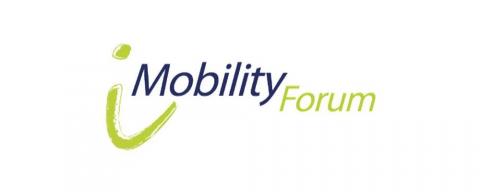You are here
iMobility Forum

In the beginning came the eSafety Initiative, launched by the European Commission in 2002 as a tool to act upon the white paper "European transport policy for 2010: time to decide" published in 2001.
Its starting point was the idea that modern information and communication technologies (ICT) could make an important and novel contribution to road traffic safety and to the reduction in road fatalities. The Commission therefore convened all relevant road safety stakeholders (road operators, the automotive industry, emergency services, telecom service providers) to accelerate the deployment of these safety systems, and to get support for further scientific research on them. The forum was named eSafety Forum: its main aim was to contribute to the European Commission's 2001 goal of halving the number of fatalities on Europe's roads by 2010.
After years of social change that took into account traffic-related environmental issues such as fuel efficiency and reduction in pollutant exhausts to the same level of importance as traffic safety, the eSafety Initiative became part of the Commission's new Intelligent Car Initiative. The eSafety Forum not only took into account changes in the policy and social framework, but also changed its name to reflect its field of work and include ICT systems for resource-efficient and clean mobility in addition to ICT-based safety technologies: the iMobility Forum was born.
The Intelligent Car initiative has now come to an end and is followed by a new initiative: the Digital Agenda for Europe (DAE). The DAE defines the key role of ICT to enable Europe to succeed in its ambitions for 2020. Horizon 2020 is the financial instrument implementing the Innovation Union, a Europe 2020 flagship initiative aimed at securing Europe's global competitiveness. Running from 2014 to 2020 with a €70 billion budget, will combine all research and innovation funding currently provided through the Framework Programmes for Research and Technical Development, the innovation related activities of the Competitiveness and Innovation Framework Programme (CIP) and the European Institute of Innovation and Technology (EIT).
Furthermore, in 2011 the European Commission published its Transport White Paper, which sets out a vision for a competitive and sustainable transport system, growing transport and supporting mobility while reaching a 60% emission reduction target by 2050, through ten goals and benchmarks, some of which will require ITS services and applications in order to succeed.
In 2012, the CTL has participated to the iMobility Forum’s European working group.
In line with the DAE, the Transport White Paper and the ITS Directive, the iMobility Forum has taken active role in implementing the actions. For this reason new Working Groups have been created where relevant, such as legal issues, vulnerable road users and automation.
Furthermore, iMobility Support succeeded the iCar Support. It will support the deployment of intelligent mobility in Europe by coordinating iMobility Forum activities, including stakeholder networking, deployment support, awareness raising and dissemination of results. It will actively support all the constituencies of the iMobility Forum and therefore ensure the continuity of the work initiated by its predecessor.

